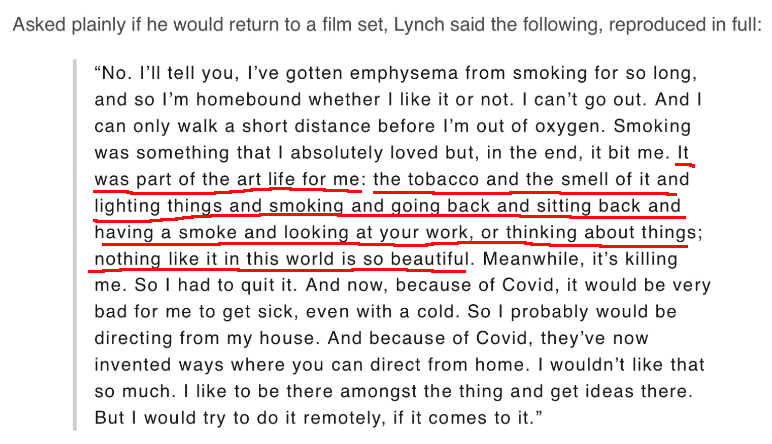This is a follow up to the first part, a part that was already hijacked from that short story by Greg Egan…
At the time of writing this I’m already back on track reading Bakker, and I don’t intend to stop. Continuing Atlas Shrugged is compelling, but I can’t delay Bakker once again. After that, I plan to do some kind of read along for Erikson’s Forge of Darkness, knowing the author should be back writing the final part of that trilogy (I was about to link the first part here, only to realize I only wrote the beginning unedited and unfinished three years ago…). But who knows. I also have 1Q84 to finish at some point.
I’m 110 pages into Atlas Shrugged. I had read parts of it, years ago, but I usually stalled around 60 pages. This is the first time going a bit further, and it’s a really interesting and stimulating read. I really enjoy it, makes me think. It creates a quite ambiguous and strange mix because of how much “philosophical” distance I have. Meaning that I also want to engage with the text, rather than reading it more passively.
This will focus on the first part of chapter 5, despite I had relevant things to say about the preceding three chapters as well.
Let’s start from the elephant in the room. This initial section of the book is mostly preoccupied of looking back at the past of the characters. Chapter 5 in particular is about the story of Dagny Taggart and her influential childhood friend, Francisco D’Anconias. Francisco comes from a noble, rich family, but he’s an overachiever and an extremely successful person even as a kid, and not directly due to his family. even during his vacations he goes to work, hard, hiding what he’s doing from his father. He’s purely driven by his own ambition, and already at very early age he sees his family more of an obstacle to overcome, than a support. The author makes it very clear that whatever this kid achieves is due solely to his own drive and determination rather than… circumstances. And this is all seen through the eyes of Dagny Taggart, who’s made of the same substance, the same drive in life, and so sees Francisco as both an inspiration and a challenge. As if it’s a game where they try to surpass each other, a symbolic duel that even becomes material at some point.
The problem, the elephant in the room, is the strong, sexist undercurrent… Ayn Rand was a woman, and in the book makes sure to write the example of a strong, successful woman, Dagny Taggart herself. Yet, there’s some kind of idealistic deference to male power, that itself risks to become “objectivist,” something that just is. And that’s again the problem that I commented during the first part: whenever you backtrack the causal chain, you usually end in a place that “just is.” It’s not objective, as part of reality, it’s just convenient fiction, that, as fiction, needs only to be stated to be true. No motivations needed.
Through these pages there’s no sexual tension between Dagny and Francisco, the only tension is purely intellectual. Yet, I turn the pages and there’s something slowly building up. To the point it edges on the creepy.
But when a thin sheet of paper fluttered down to the floor and she bent to pick it up, she was suddenly as intently conscious of that particular moment, of herself and her own movement. She noticed her gray linen skirt, the rolled sleeve of her gray blouse and her naked arm reaching down for the paper. She felt her heart stop causelessly in the kind of gasp one feels in moments of anticipation. She picked up the paper and turned back to her desk.
I mean, times are different, but you really have to try hard to see this passage as some sexual provocation… Yet this is still the effect while reading. What is going on here? What’s that “anticipation” for?
Dagny is working late through the night. Francisco comes in…
“What are you doing up at this hour?” she asked.
“I didn’t feel like sleeping.”
“How did you get here? I didn’t hear your car.”
“I walked.”
And what does he? He sits there, silently, watching her working like the creep he is.
He did not seem to want to talk. He asked a few questions about her job, then kept silent.
He sat in a corner, one leg thrown over the arm of his chair, waiting.
Hours pass, he watches her working, until morning:
She glanced at Francisco: he was looking at her, with the same smile.
Waiting, like a snake fixed on its prey.
When it’s time to get home she moves toward her car, but Francisco blocks her and asks her to walk through the woods. It’s implied she’s exhausted for having worked through the night, but she doesn’t like to sleep and doesn’t feel that exhaustion:
Each night, she drove the five miles from the country house to Rockdale. She came back at dawn, slept a few hours and got up with the rest of the household. She felt no desire to sleep. Undressing for bed in the first rays of the sun, she felt a tense, joyous, causeless impatience to face the day that was starting.
So they walk through the woods.
She noticed suddenly that they had not said a word for a long time.
They came to a clearing.
And.
They stopped and looked at each other. She knew, only when he did it, that she had known he would. He seized her, she felt her lips in his mouth, felt her arms grasping him in violent answer, and knew for the first time how much she had wanted him to do it.
Okay, we’re in romance territory here, more or less, but:
She felt a moment’s rebellion and a hint of fear. He held her, pressing the length of his body against hers with a tense, purposeful insistence, his hand moving over her breasts as if he were learning a proprietor’s intimacy with her body, a shocking intimacy that needed no consent from her, no permission. She tried to pull herself away, but she only leaned back against his arms long enough to see his face and his smile, the smile that told her she had given him permission long ago. She thought that she must escape; instead, it was she who pulled his head down to find his mouth again.
In the end this is a consensual act, the writer explicitly makes it so. But the writing is quite problematic regardless. The problem is in that sexist undercurrent. In the legitimization of that power and influence that Francisco has over Dagny. No matter how “objective” you try to make it, it’s still creepy.
She knew that fear was useless, that he would do what he wished, that the decision was his, that he left nothing possible to her except the thing she wanted most — to submit.
Write that on the cover, will you?
Her strongest, willful character, the one that embodies her philosophy and morals, in the end finds her purpose: to submit to a man.
“Francisco,” she asked him once, in sudden astonishment, “I’m your mistress, am I not?” He laughed. “That’s what you are.” She felt the pride a woman is supposed to experience at being granted the title of wife.
It’s quite an eloquent example of how a patriarchal culture runs deep to the point of being assimilated. This is indistinguishable from identity. There is no “wrong” here because any alternative has been erased. There is no other state of being, there is no other choice. You have to read the whole chapter to understand the full impact of this, because Dagny is no standard woman. She is almost masculine, she hasn’t blended with other women and girls her age. She has no interest in men and the one time she tries she ends up bored and disappointed. She deliberately refuses success and approval.
She was fifteen when it occurred to her for the first time that women did not run railroads and that people might object. To hell with that, she thought — and never worried about it again.
She is driven, by herself, AGAINST the norm. Her track is her own track, and yet she CHUGS DOWN that sexism as the sweetest wine.
To Mrs. Taggart, the greatest surprise was the moment when she saw Dagny standing under the lights, looking at the ballroom. This was not a child, not a girl, but a woman of such confident, dangerous power that Mrs. Taggart stared at her with shocked admiration. In an age of casual, cynical, indifferent routine, among people who held themselves as if they were not flesh, but meat — Dagny’s bearing seemed almost indecent, because this was the way a woman would have faced a ballroom centuries ago, when the act of displaying one’s half-naked body for the admiration of men was an act of daring, when it had meaning, and but one meaning, acknowledged by all as a high adventure. And this — thought Mrs. Taggart, smiling — was the girl she had believed to be devoid of sexual capacity. She felt an immense relief, and a touch of amusement at the thought that a discovery of this kind should make her feel relieved.
This passage, and whole chapter, is incredible not for the banality, but for the exceptionalism of it.
“Why should you care about the others?”
“Because I like to understand things, and there’s something about people that I can’t understand.”
“What?”
“Well, I’ve always been unpopular in school and it didn’t bother me, but now I’ve discovered the reason. It’s an impossible kind of reason. They dislike me, not because I do things badly, but because I do them well. They dislike me because I’ve always had the best grades in the class. I don’t even have to study. I always get A’s. Do you suppose I should try to get D’s for a change and become the most popular girl in school?”
Francisco stopped, looked at her and slapped her face.
How obnoxious you must be to act like that? Sure, he’s written to be righteous and have a point. But to SLAP your friend on the basis of a hint of weakness? How fucking OBNOXIOUS and totalitarian. Can’t tolerate any error. We must be PERFECT through and through. Exhibit even a minimum of humanity, of doubt, of weakness, and get SLAPPED HARD by this paragon of absolute virtue that is Francisco D’Anconias, aged fifteen.
Jim, who’s the literal evil in the book, almost sounds reasonable when pitched against the sheer absurdity of the situation:
“All those airs you put on, pretending that you’re an iron woman with a mind of her own! You’re a spineless dishrag, that’s all you are. It’s disgusting, the way you let that conceited punk order you about. He can twist you around his little finger. You haven’t any pride at all. The way you run when he whistles and wait on him! Why don’t you shine his shoes?”
“Because he hasn’t told me to,” she answered.
Once again, the moment you question Francisco “circumstances”, they always come back… to magic.
No matter what discipline was required of him by his father’s exacting plan for his education, no matter what subject he was ordered to study, Francisco mastered it with effortless amusement. His father adored him, but concealed it carefully.
A master at everything. A man born with an affinity to success. How? Why? These questions simply disintegrate in the face of the “what.”
He had started working at the foundry as furnace boy, when he was sixteen — and now, at twenty, he owned it.
Fiction.
His financial talent was called phenomenal; no one had ever beaten him in any transaction — he added to his incredible fortune with every deal he touched and every step he made, when he took the trouble to make it.
Francisco found it natural that the Taggart children should be chosen as his companions: they were the crown heirs of Taggart Transcontinental, as he was of d’Anconia Copper. “We are the only aristocracy left in the world—the aristocracy of money,” he said to Dagny once, when he was fourteen. “It’s the only real aristocracy, if people understood what it means, which they don’t.”
Natural Born Killers Geniuses.
Since this is all of a political nature already, let’s get POLITICAL, shall we?

The purpose of this post is quite simple, but the irony for me is how banal the counter argument is: in what science the same starting conditions produce different outcomes?
This is very much in topic here. You wonder why I read Bakker now? Ayn Rand is all about backtracking the causal chain until you find the magic of make believe. Bakker is all about backtracking the causal chain until you find truth. The darkness that comes before, that everyone tries to hide or ignore.
If the starting conditions are the same, what is that makes men successful? What darkness was enacted in between?
THE GENIUS! THE CREATIVITY! THE WILL!
(the bullshit we tell ourselves to feel great)
“I like cigarettes, Miss Taggart. I like to think of fire held in a man’s hand. Fire, a dangerous force, tamed at his fingertips. I often wonder about the hours when a man sits alone, watching the smoke of a cigarette, thinking. I wonder what great things have come from such hours. When a man thinks, there is a spot of fire alive in his mind — and it is proper that he should have the burning point of a cigarette as his one expression.”

And naught was known or unknown, and there was no hunger.
All was One in silence, and it was as Death.
Then the Word was spoken, and One became Many.
Doing was struck from the hip of Being.
And the Solitary God said, “Let there be Deceit.
Let there be Desire.”
Kellhus sipped his bowl of anpoi, watching the man.
“So this is how you conceive me?”
“This is how all Zaudunyani conceive you! You are out Prophet!”
Behave like one.
There is a head on a pole behind you.
And he sees that these things are meat, here. Love is meat. Hope is meat. Courage. Outrage. Anguish. All these things are meat – seared over fire, sucked clean of grease.
There is a head on a pole.
Taste, one of the Sons says to him. Drink.

